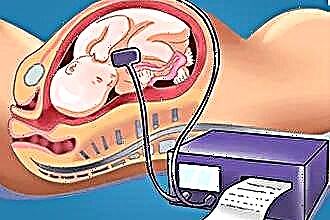If an inflammatory process develops in the ear, its elimination occurs, first of all, by fighting the infection that provoked the disease. Thus, the symptoms of the disease are removed, the pain is reduced and, finally, the inflammation itself is removed. To overcome the disease, it is necessary to apply complex therapy - a combination of different methods of treatment. Anti-inflammatory ear drops are considered one of the most effective.
Two groups of drugs
 Anti-inflammatory ear drops are divided into 2 groups: monopreparations and combined agents. The former are usually used to eliminate symptoms, local anesthesia and reduce edema. However, they do not fight infection, and if pus is also present, they are not at all effective. In this case, drops from the second group are used, which are aimed immediately at eliminating the cause of the inflammatory process and alleviating symptoms.
Anti-inflammatory ear drops are divided into 2 groups: monopreparations and combined agents. The former are usually used to eliminate symptoms, local anesthesia and reduce edema. However, they do not fight infection, and if pus is also present, they are not at all effective. In this case, drops from the second group are used, which are aimed immediately at eliminating the cause of the inflammatory process and alleviating symptoms.
Today, the most commonly prescribed anti-inflammatory ear drops are:
- monopreparations based on non-steroidal substances (Otipax, Otinum);
- combination drugs (Sofradex, Candibiotic, Garazon, Polydex).
What drops eliminate inflammation
- Otipax is a non-steroidal agent, which is characterized by a decrease in local temperature, inflammation and anti-edema action. It is used most often to combat otitis media and myringitis, as well as to eliminate complications that have arisen after surgery. The effect is felt within 5 minutes after the drug is instilled into the ear: not only pain is muffled, but also other inflammatory symptoms. This is one of the most reliable means for suppressing the inflammatory process at the earliest stage of the disease.
 "Otinum" - drops to reduce inflammation and eliminate pain. Also acts as an antiseptic. It is possible to be treated with this drug only after an otoscopy, a procedure that determines the integrity of the tympanic membrane. Since Otinum contains salicylates, they must not be allowed to enter the middle ear. Otherwise, the inflammation will be complicated by partial or even complete hearing loss.
"Otinum" - drops to reduce inflammation and eliminate pain. Also acts as an antiseptic. It is possible to be treated with this drug only after an otoscopy, a procedure that determines the integrity of the tympanic membrane. Since Otinum contains salicylates, they must not be allowed to enter the middle ear. Otherwise, the inflammation will be complicated by partial or even complete hearing loss.- "Sofradex" is a drug that has both anti-inflammatory and antimicrobial effects. It is able to destroy most of the harmful bacteria "responsible" for inflammatory processes in the ear. This glucocorticosteroid helps to reduce the symptoms of the developing inflammatory process - swelling, redness, soreness, and also inhibits the mediators that trigger inflammation.
An important point: prolonged use of "Sofradex" can cause the formation of persistent pathogenic ear microflora and, consequently, the development of so-called superinfections, which are extremely difficult to treat.
- "Candibiotic" is a combination of active substances that has both antimicrobial, anti-inflammatory and antifungal effects. This drug can be used instead of several medications that are prescribed for diffuse otitis media, otomycosis and diseases of an allergic nature.
 "Garazon" is a medicine with the antibiotic gentamicin and the glucocorticoid betamethasone. It is thanks to these components that the effectiveness of the remedy is an order of magnitude higher than the other anti-inflammatory ones. "Garazon" kills microbes in the very focus of active infection, eliminates local symptoms of the inflammatory process (redness and swelling of tissues), muffles allergic manifestations, and tidies up the capillaries. Important note: before you start using the drops, you should cleanse the external ear canal, and warm the bottle with the medicine in your hand.
"Garazon" is a medicine with the antibiotic gentamicin and the glucocorticoid betamethasone. It is thanks to these components that the effectiveness of the remedy is an order of magnitude higher than the other anti-inflammatory ones. "Garazon" kills microbes in the very focus of active infection, eliminates local symptoms of the inflammatory process (redness and swelling of tissues), muffles allergic manifestations, and tidies up the capillaries. Important note: before you start using the drops, you should cleanse the external ear canal, and warm the bottle with the medicine in your hand.- "Polydexa" is another combination that combines antimicrobial components with a hormonal substance. Quite powerful antibiotics (polymyxin and neomycin) effectively deal with Staphylococcus aureus, Klebsiella, dangerous bacilli (hemophilic and Pseudomonas aeruginosa), as well as with some enterobacteria. And the glucocorticoid dexamethasone relieves inflammatory symptoms.
Doctors confirm that "Polydexa" in a short time is able to completely eliminate inflammation even in children whose immunity is still at the stage of formation.
What to look for when choosing a medicine
| Drug name | Who can | Contraindications | A course of treatment | Ease of use |
| Otipax | Children (even babies) and adults. | Hole in the drum membrane; excessive sensitivity to any component of the drug. For those who are professionally involved in sports: the preparation contains an active substance that can give a positive reaction to an anti-doping test. | 10 days. | Supplied with a soft pipette. |
| "Otinum" | Children (from 1 year old) and adults. | Excessive sensitivity to choline salicylate and excipients; hole in the drum membrane; suffered once acute coryza, bronchial asthma, urticaria associated with taking aspirin and other non-steroidal drugs against inflammation. | Up to 10 days. | Dropper bottle with screw cap. |
| "Sofradex" | Children (from 7 years old) and adults. | Tuberculosis; fungal, viral, or purulent infections; hole in the drum membrane. | Up to 7 days. | A bottle with a plastic dropper. |
| "Candibiotic" | Children (from 6 years old) and adults. | Hole in the ear membrane; the period of pregnancy and breastfeeding; excessive sensitivity to components. | 7-10 days. | A vial with a screw cap in which a pipette is inserted. |
| "Garazon" | Children (from 8 years old) and adults. | Tuberculosis; fungal infections; excessive sensitivity to substances in the preparation; hole in the ear membrane or its absence; the period of pregnancy and breastfeeding. | Up to 14 days. | Dropper bottle. |
| "Polydexa" | Children (from 3 years old) and adults. | Injured ear membrane as a result of a blow or infection; excessive sensitivity to substances in the preparation; the period of pregnancy (with the permission of the gynecologist due to the toxicity to the fetus). | 7-10 days. | Supplied with a pipette. |
Post factum
 In order to timely prevent the continuation of the development of the inflammatory process in the ear, it is advisable to find out what drops in the ears (anti-inflammatory) are currently on sale. Attention should be paid to every detail - the peculiarities of the effect of the drug on the body, as well as side effects and contraindications.
In order to timely prevent the continuation of the development of the inflammatory process in the ear, it is advisable to find out what drops in the ears (anti-inflammatory) are currently on sale. Attention should be paid to every detail - the peculiarities of the effect of the drug on the body, as well as side effects and contraindications.
Of course, in case of ear inflammation, only an otolaryngologist should prescribe ear drops, who will make an accurate diagnosis and take into account the characteristics of your body. Amateur performance in this case can lead to complications and significantly harm.
It should be noted that most modern remedies are quite effective - however, only when they are used correctly and in accordance with the diagnosis.

 "Otinum" - drops to reduce inflammation and eliminate pain. Also acts as an antiseptic. It is possible to be treated with this drug only after an otoscopy, a procedure that determines the integrity of the tympanic membrane. Since Otinum contains salicylates, they must not be allowed to enter the middle ear. Otherwise, the inflammation will be complicated by partial or even complete hearing loss.
"Otinum" - drops to reduce inflammation and eliminate pain. Also acts as an antiseptic. It is possible to be treated with this drug only after an otoscopy, a procedure that determines the integrity of the tympanic membrane. Since Otinum contains salicylates, they must not be allowed to enter the middle ear. Otherwise, the inflammation will be complicated by partial or even complete hearing loss. "Garazon" is a medicine with the antibiotic gentamicin and the glucocorticoid betamethasone. It is thanks to these components that the effectiveness of the remedy is an order of magnitude higher than the other anti-inflammatory ones. "Garazon" kills microbes in the very focus of active infection, eliminates local symptoms of the inflammatory process (redness and swelling of tissues), muffles allergic manifestations, and tidies up the capillaries. Important note: before you start using the drops, you should cleanse the external ear canal, and warm the bottle with the medicine in your hand.
"Garazon" is a medicine with the antibiotic gentamicin and the glucocorticoid betamethasone. It is thanks to these components that the effectiveness of the remedy is an order of magnitude higher than the other anti-inflammatory ones. "Garazon" kills microbes in the very focus of active infection, eliminates local symptoms of the inflammatory process (redness and swelling of tissues), muffles allergic manifestations, and tidies up the capillaries. Important note: before you start using the drops, you should cleanse the external ear canal, and warm the bottle with the medicine in your hand.

